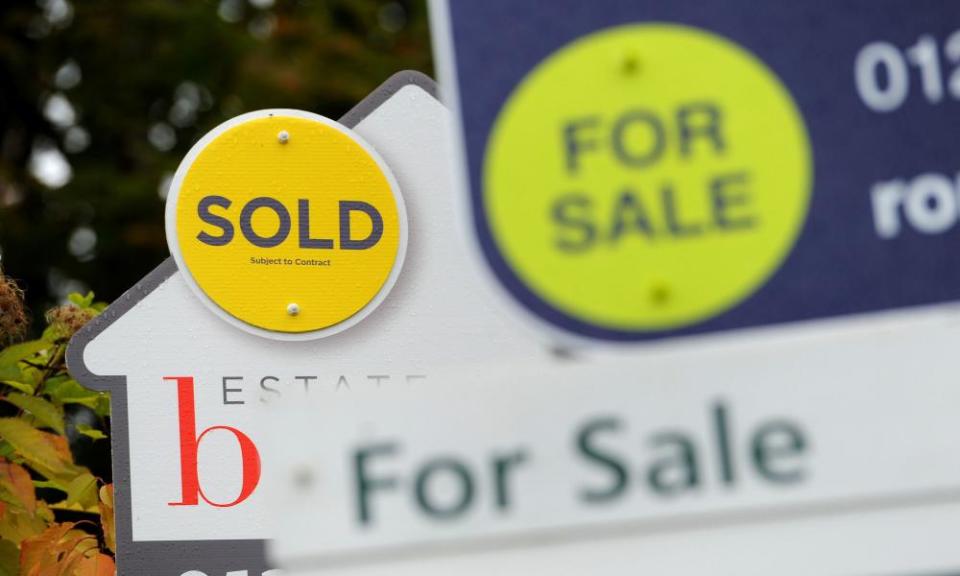House sellers ‘putting up prices despite rate rises and cost of living crisis’

House sellers have continued to raise their asking prices despite borrowers facing higher interest rates and the cost of living squeeze, data from property portal Rightmove shows.
The average price of a home coming to market increased by £2,587, or 0.7% month-on-month in September to £367,760, according to the company.
Price growth was concentrated in the middle and higher end of the market as homeowners looked to move up the property ladder. Prices in the so-called “second stepper” category – three-bedroom homes and non-detached four-bedroom properties – hit a new record average asking price of £340,513.
Tim Bannister, Rightmove’s housing expert, said the UK market remains “surprisingly resilient” despite growing economic pressures.
Last week’s rise in UK interest rates, to 2.25%, will increase the financial burden on borrowers. Rightmove reports that new first-time buyers are paying average monthly mortgage payments of £1,057, which will increase to £1,114 a month if lenders pass on the latest half-point interest rate rise.
Last week’s stamp duty changes from the chancellor, Kwasi Kwarteng, could give property prices another boost, at least in the short term. No tax will have to be paid on properties up to the value of £250,000, while the threshold for first-time buyers will be £425,000.
Related: What does Kwarteng’s stamp duty cut mean for UK homebuyers?
Bannister predicted that the changes could lead to “some unseasonal price rises over the next few months” if there is a big jump in prospective buyers competing for a limited number of properties for sale.
“The first-time buyer threshold change means we could see more first-time buyers,” he said.
Richard Davies, MD of estate agent Chestertons, says the changes could be particularly important to first-time buyers in London but agreed it could also lead more house-hunters into the market, driving up prices.
“If this added demand isn’t met swiftly, the tax cut could boost the existing imbalance of supply and demand, which consequently leads to an initial spike in property prices,” Davies added.
But if interest rates continue to rise to combat inflation, as the markets expect, mortgage affordability will be hit as the cost of repaying loans increases.

 Yahoo Finance
Yahoo Finance 